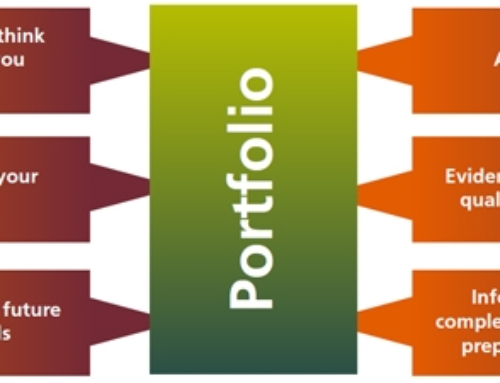Guidelines for mentoring
Following are some of the common questions which come up while setting up a mentoring program. These can be used as guidelines in running a mentoring program.
1- For mentors, what are the dos and don’ts during mentoring?
The mentor is critical. There’s no other way to put it. Even if there is a good program administrator and an eager mentee, without a mentor who is a willing and active participant, the process will break down. Here are three ways that a mentor can be a good teacher for mentees:
- Mentor has to exhibit the highest professional standards. In every scenario imaginable, the mentee is looking to the mentor for guidance and information, and is going to be more impressionable than a peer-to-peer relationship.
- Mentor should give out pearls of wisdom. When a mentor freely gives from his accumulated wealth of resources and knowledge, everyone benefits. The mentor should provide specific examples with detail to help the mentee think through as many of the variables as possible.
- Mentor should go ahead and say “I don’t know.” Admitting a lack of knowledge can be a mark of a great teacher. It encourages joint learning and problem-solving, and can bring additional colleagues into the conversation to create a team dynamic. It also demonstrates to the mentee that the mentor, too, faces adversity and strives to overcome it.
On the flip side of positive attributes of successful mentors, there are some definite negative behaviors that should be avoided.
- Mentors should avoid being casual, crass, or negative. While the mentor may have become disheartened in his job, it may be time for the program administrator to consider whether the person is appropriate for a mentoring roll.
- Mentors should try to avoid either a sugar coating or an acid wash. Mentors that are too positive or too negative can set false expectations for the mentee.
- Mentor should avoid offering a mentee more than he can deliver, unless the mentor is in the position to actually perform right away on that representation.
- And, as one overall comment, many of the awkward situations that can happen in the course of a mentor-mentee relationship are easily rectified with a little help from the program administrator in a quasi-role of a neutral third party.
2- For mentees, what are the dos and don’ts during mentoring?
In fact, the most important responsibility for the mentee is to show up prepared to ask questions.
- The number one tip for a mentee is to use the mentor’s time wisely. The mentor is offering to help, but there can be nothing worse than offering to help and having the mentee show no interest. Good questions from a mentee inspire a mentor to be thoughtful and helpful.
- Another tip for mentees is to demonstrate a willingness to learn. The best way a mentee can pull more information out of a mentor is to demonstrate an application of what has already been taught.
- Finally, a mentee should use good manners, including sending a thank you note.
3 – What is the role of the mentoring program administrator?
The role of the mentoring program administrator can be dynamic and involved from program inception to mentor-mentee matching and facilitation.
The program administrator’s range of functions:
Design and update of the program specifications. A well-functioning program can include writing guidelines, matching, monitoring, evaluating, and modifying.
Designing the mentoring program involves several questions, including:
-
mentoring program objectives;
-
matching criteria to pair mentors with mentees;
-
data collection; and,
-
articulation of mentoring program metrics.
The first point – mentoring program objectives – Why is the mentoring program going to be undertaken? A clear articulation of the goals for the mentoring program will shape its structure, launch, and function.
Once the program administrator writes a purpose statement for the mentoring program, it is easy to make a list of the policies and guidelines for implementation of the mentoring program.
One policy recommended for all forms of mentoring programs is a written privacy policy. Among the benefits of a written privacy policy are use of the policy as a teaching tool to mentors and mentees and use of the policy to create accountability against inappropriate behaviour.
The program administrator can also be responsible to design the metric by which the mentoring program will be evaluated.
The additional primary function for the program administrator is to correct problems, as they arise, which is discussed in respect to the next question.
4- How can mismatch happen during mentoring and what can be done to rectify it?
The program administrator needs to understand that mismatches can and will occur given enough matches and enough time. A mentor-mentee relationship is no different than any other human relationship.
What is important in a mismatch situation is that one or both of the participants reaches out to the program administrator. That said, the program administrator has to reach out to the mentors and mentees on a periodic basis to make an actual inquiry whether any problem has arisen and the overall satisfaction experienced.
The typical steps in a mismatch situation are: validation, collection of narratives, option identification, and solution adoption.
5- What can cause failures in a mentoring program?
The program is not going to start itself, nor will there be a point at which the program will be self-sustaining. A mentoring program requires a conductor, just like any orchestra. The program needs to be designed and policies adopted. Matches need to be made, and the mentoring environment needs to be nurtured.
- The most likely place for a mentoring program to fail is during the design phase. Someone thinks it is a good idea and assigns it to someone else, and drafts are not completed, or there’s no budget.
- The other fail point is when a successful mentoring program loses its administrator. Successful mentoring programs need to be captured in writing, so as to be preserved for the inevitable transitions.
6- How can you improve success rates in a mentoring program?
Sometimes, success can be harder to figure out than failure.
- Careful planning helps.
- A supportive company environment is a factor.
- A dynamic and committed plan administrator.
- Mentors that are truly engaged in their line of work and welcoming of new employees are the best.
- And mentees excited to be entering the profession round out the list.
A company should look for that person who believes in the value and benefits of a mentoring program, and, ideally, has participated in a mentoring program. When a plan administrator shares the values attributable to the mentoring concept, it will flow through to all associated tasks, most particularly recruitment and issue resolution.
Learn more at mutualforce.com.
For the full article visit: Corporate mentoring program | Employee mentoring program | Mentoring management.






Leave A Comment
You must be logged in to post a comment.